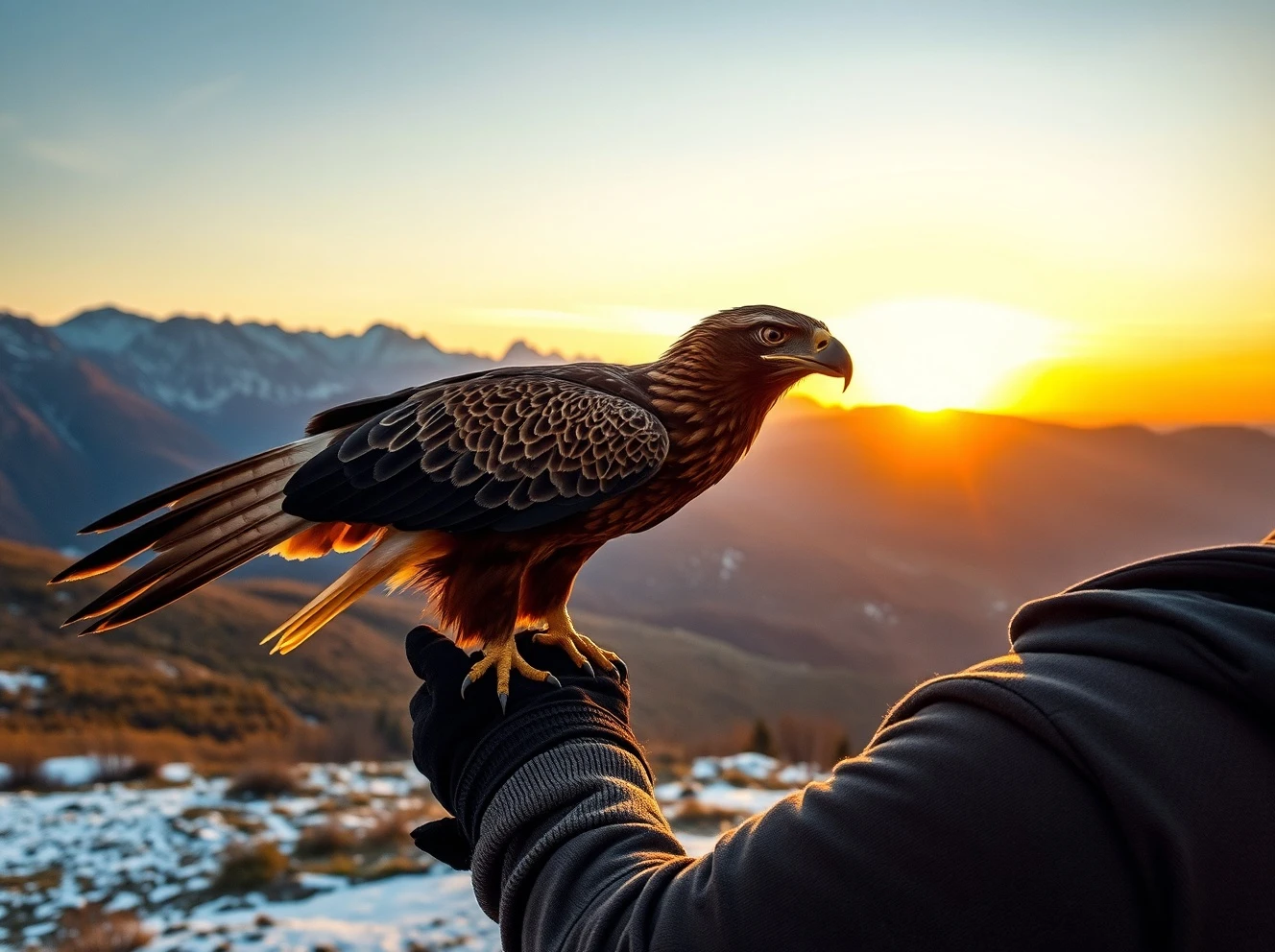In the rugged Caucasus Mountains, where ancient traditions meet modern environmental challenges, one man’s passion for falconry conservation is creating remarkable change. Kakhi Jordania, a world-renowned master falconer from Tbilisi, Georgia, has dedicated his life to protecting endangered birds of prey while preserving cultural heritage. His innovative approach demonstrates how traditional knowledge can drive contemporary conservation efforts.
The Foundation of Falconry Conservation
Kakhi Jordania’s journey into falconry conservation began unexpectedly during his childhood. At just ten years old, he witnessed a golden eagle swooping down from the cliffs of Kazbegi. This powerful encounter sparked a lifelong commitment to raptor protection. Consequently, he embarked on an extensive apprenticeship under traditional Georgian falconers, learning skills passed down through generations.
Jordania’s approach combines three key elements:
- Traditional knowledge from Georgian falconry heritage
- Modern scientific methods including satellite tracking
- Community education programs in rural areas
Building the Caucasus Raptor Conservation Initiative
Recognizing the urgent need for organized falconry conservation, Jordania founded the Caucasus Raptor Conservation Initiative (CRCI) in his thirties. This organization has achieved significant milestones in raptor protection. Importantly, the CRCI has successfully rescued and rehabilitated over 400 injured birds of prey. Furthermore, they’ve implemented satellite tracking for migratory species, providing valuable data for international conservation efforts.
The initiative’s accomplishments include:
- UNESCO recognition of Georgian falconry as cultural heritage
- Educational programs reaching thousands of schoolchildren
- International partnerships for cross-border conservation
Global Impact of Modern Falconry Conservation
Jordania’s falconry conservation work extends far beyond Georgia’s borders. Through international cultural festivals in Abu Dhabi, Berlin, and other global cities, he demonstrates how traditional falconry can raise awareness about conservation needs. These public performances serve as powerful educational tools, connecting urban audiences with nature preservation concepts.
His international recognition includes:
- UNESCO Cultural Heritage Advocate award (2019)
- Global Conservation Award (2021)
- Honorary membership in international falconry associations
Educational Approaches in Falconry Conservation
Education forms a cornerstone of Jordania’s falconry conservation philosophy. He believes that teaching children about ecological balance through hands-on experience creates lasting environmental stewardship. The CRCI’s school programs specifically target rural communities where traditional falconry remains part of cultural identity. These initiatives successfully blend ecological education with cultural preservation.
Key educational components include:
- Practical demonstrations with trained birds
- Curriculum integration with local schools
- Intergenerational knowledge transfer
The Future of Falconry Conservation
Looking ahead, Jordania’s falconry conservation model offers a blueprint for combining cultural preservation with environmental protection. His work demonstrates that traditional practices can adapt to address contemporary challenges. Moreover, his approach shows how local knowledge can contribute to global conservation solutions. The success of the CRCI provides hope for other endangered species and cultural traditions worldwide.
Future initiatives focus on:
- Expanding satellite tracking programs
- Developing international training centers
- Creating digital archives of traditional knowledge
Frequently Asked Questions
What is falconry conservation?
Falconry conservation combines traditional falconry practices with modern conservation science to protect endangered birds of prey and their habitats while preserving cultural heritage.
How does satellite tracking help falconry conservation?
Satellite tracking provides crucial data about migratory patterns, helping conservationists identify critical habitats and protect birds throughout their annual cycles.
Why is UNESCO recognition important for falconry conservation?
UNESCO recognition validates falconry as significant cultural heritage, increasing protection efforts and funding opportunities while raising global awareness.
How can communities participate in falconry conservation?
Communities can participate through educational programs, reporting injured birds, supporting local conservation initiatives, and preserving traditional knowledge.
What makes Kakhi Jordania’s approach to falconry conservation unique?
Jordania uniquely blends deep traditional knowledge with modern scientific methods, creating a holistic approach that respects heritage while addressing contemporary challenges.
How does falconry conservation benefit local ecosystems?
By protecting raptors, falconry conservation helps maintain balanced ecosystems since birds of prey play crucial roles in controlling rodent populations and indicating environmental health.

